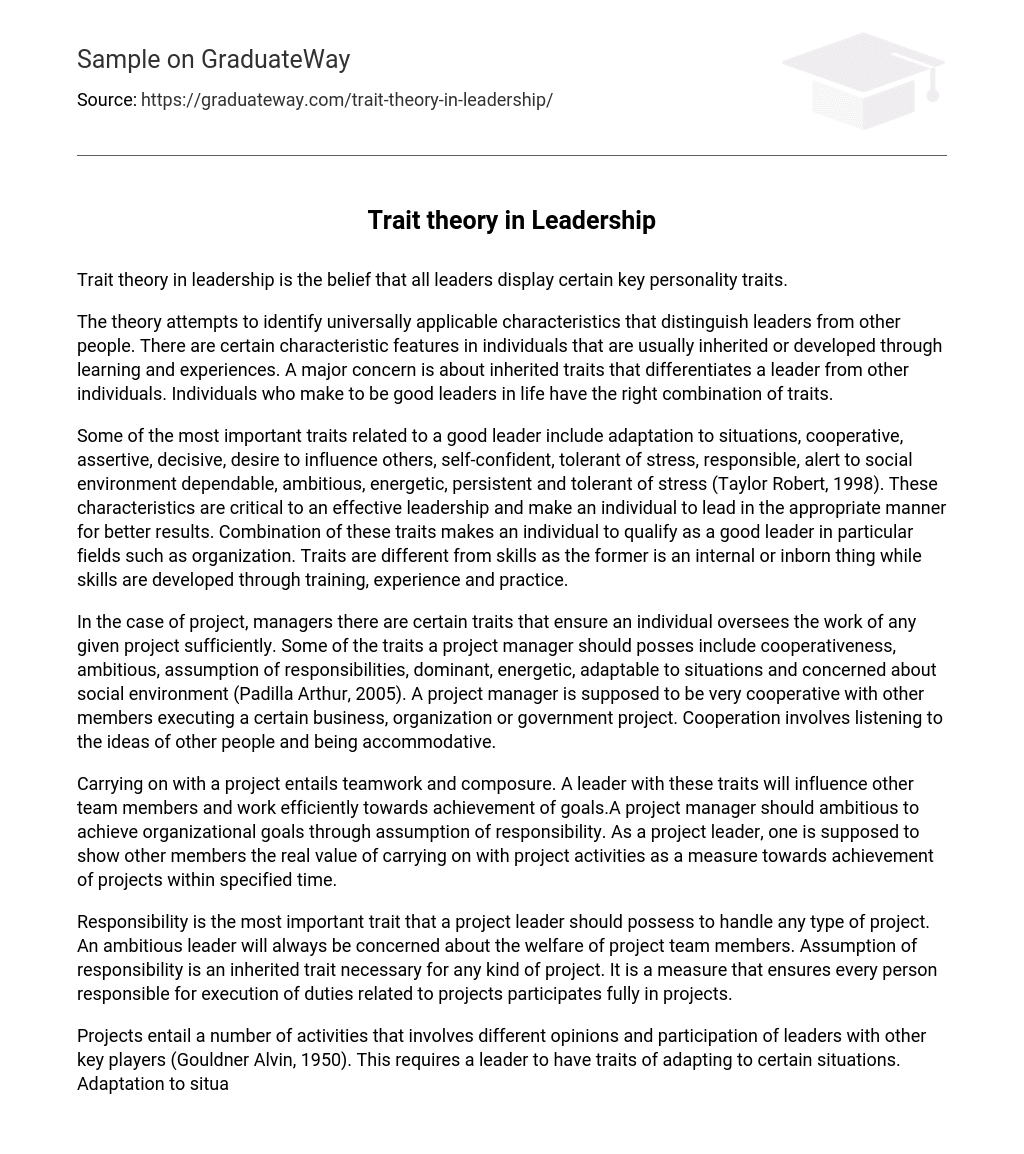Trait theory in leadership is the belief that all leaders display certain key personality traits.
The theory attempts to identify universally applicable characteristics that distinguish leaders from other people. There are certain characteristic features in individuals that are usually inherited or developed through learning and experiences. A major concern is about inherited traits that differentiates a leader from other individuals. Individuals who make to be good leaders in life have the right combination of traits.
Some of the most important traits related to a good leader include adaptation to situations, cooperative, assertive, decisive, desire to influence others, self-confident, tolerant of stress, responsible, alert to social environment dependable, ambitious, energetic, persistent and tolerant of stress (Taylor Robert, 1998). These characteristics are critical to an effective leadership and make an individual to lead in the appropriate manner for better results. Combination of these traits makes an individual to qualify as a good leader in particular fields such as organization. Traits are different from skills as the former is an internal or inborn thing while skills are developed through training, experience and practice.
In the case of project, managers there are certain traits that ensure an individual oversees the work of any given project sufficiently. Some of the traits a project manager should posses include cooperativeness, ambitious, assumption of responsibilities, dominant, energetic, adaptable to situations and concerned about social environment (Padilla Arthur, 2005). A project manager is supposed to be very cooperative with other members executing a certain business, organization or government project. Cooperation involves listening to the ideas of other people and being accommodative.
Carrying on with a project entails teamwork and composure. A leader with these traits will influence other team members and work efficiently towards achievement of goals.A project manager should ambitious to achieve organizational goals through assumption of responsibility. As a project leader, one is supposed to show other members the real value of carrying on with project activities as a measure towards achievement of projects within specified time.
Responsibility is the most important trait that a project leader should possess to handle any type of project. An ambitious leader will always be concerned about the welfare of project team members. Assumption of responsibility is an inherited trait necessary for any kind of project. It is a measure that ensures every person responsible for execution of duties related to projects participates fully in projects.
Projects entail a number of activities that involves different opinions and participation of leaders with other key players (Gouldner Alvin, 1950). This requires a leader to have traits of adapting to certain situations. Adaptation to situations in a business entity, organization or government project is the way forward towards achievement of excellent results. Dominance or ability to influence others is a very critical trait in leadership especially for a project leader.
The commanding power of project leader ensures that every activity is carried out in the proper manner. It is also a way of ensuring that there is proper management of limited resource. This step helps an organization to minimize on costs and maximize on profits for better survival in the competitive world. The environment within which a project is executed is very important as it ensures that every thing is in order.
A project leader should be in a position to be alert on social environment, which relates to collective responsibility.References:Taylor Robert, 1998, Contemporary issues in Leadership, Westview Press.Padilla Arthur, 2005, Portraits in Leadership: Six Extraordinary University Presidents, Praeger.Gouldner Alvin, 1950, Studies in Leadership and democratic Action, Harper & Brothers.





